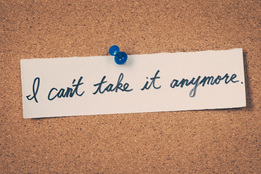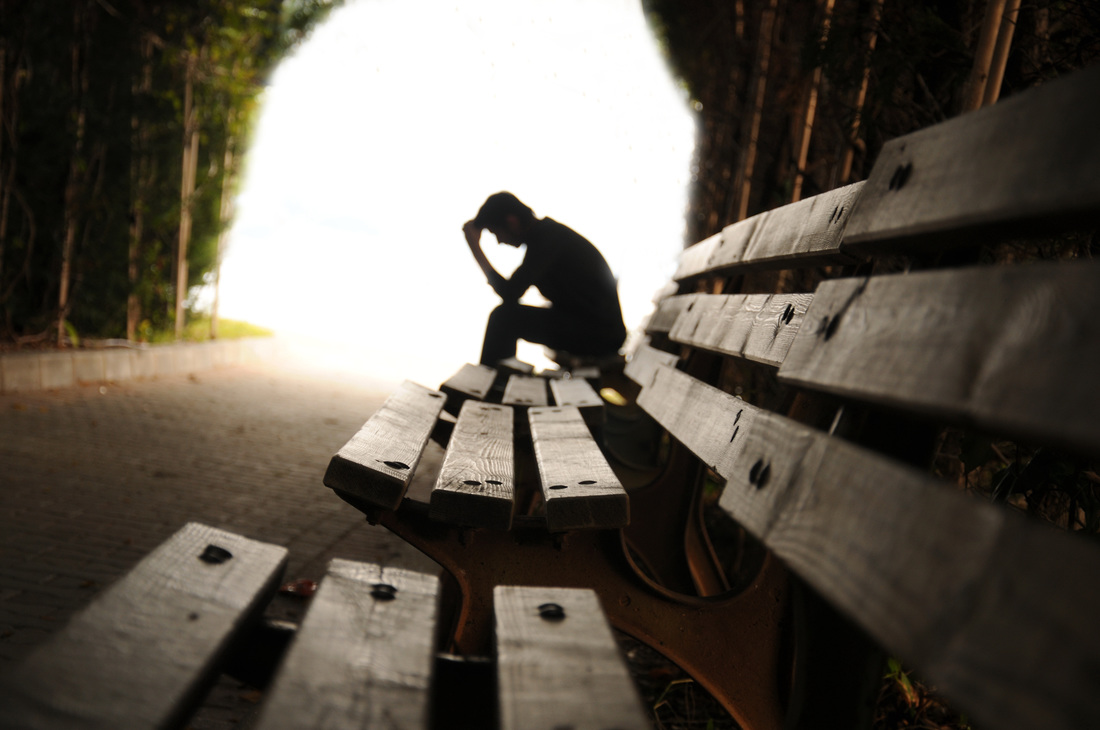 What would happen if we reclassified depression as a certified ‘survival strategy’? There’s a sense in which depression can appear like a tactical retreat - withdrawal to a dark place where we can hide from intolerable demands. When someone is suffering the most severe depression, they often have no real sense of wanting to get ‘better’. This can be very distressing for the people who love them and ‘want them back’. Often, they feel anger and resentment towards this person who has abandoned them by slipping into this faraway place. The clinically or chronically depressed person allows themselves to let go of all efforts to keep functioning, and enters a kind of ‘bare minimum existence’. When I work with people who are depressed, it often feels like they’re saying, with total honesty, ‘I just can’t deal with life anymore.’ What we call ‘normal life’ often includes unbearable experiences of neglect, rejection and hurt. Mostly these events aren’t remarkable enough to make headline news:
When we experience pain and cannot protect ourselves, we feel helpless. Depression expresses the same sort of feelings: I am powerless to change anything. I will retreat to a place where no-one can reach me.  So-called ‘healthy, functioning adults’ have ways of keeping hurt, frightening feelings at bay. We toughen up. We devote ourselves to our work, or our children. We drink, or eat too much. We keep moving and never allow ourselves to be still long enough for uncomfortable feelings to surface. These are all effective coping strategies which allow us to keep participating in life. We continually prove to ourselves that we are not helpless by coping and keeping going. Often, the killer blow that knocks a person into serious depression comes when they no longer have the strength to keep overriding the difficult feelings which lurk behind all our coping strategies. There comes a point where we are just plain exhausted by working so hard at avoiding our underlying anxiety and hurt. In many cases, it seems to be the body, rather than the mind, which tips a person into chronic depression. The body is too tired to keep ‘coping’ any longer. Many a depressed person has spent years living in a body that’s been in a near-constant state of ‘red-alert’. This can feel normal if we’ve never known any different. But a body that exists at this level of arousal day after day will tire and weaken sooner or later. If we acknowledge that becoming seriously depressed is at least partly due to the body caving in after years of excessive demand, then we remove any possible judgement that depression is some kind of ‘mental weakness’. It also raises the possibility that recovery from depression may involve some specific steps:
When we approach our exhausted mind and body with deep compassion and respect, we allow ourselves to embark on a profound healing journey. And this way, when we eventually emerge from our hiding place, it is with a whole new perspective that allows us to live life more fully. Hilary Cooper
2 Comments
Amanda - Life Solutions
15/5/2016 09:34:44
Thanks Lis. I will pass your comments onto Hilary.
Reply
Leave a Reply. |
The Holistic Life CoachHolistic & Natural Solutions for Health and Wellbeing Categories
All
Archives
March 2018
|
COOKIE POLICYWe use cookies on this site to help us improve your experience. If you wish to understand fully how we use these, click through for our 'cookie policy'.
PRIVACY POLICY |
disclaimerAll material on this website is provided for your information only and may not be construed as medical advice or instruction. |
Contact UsSubscribeJoin our mailing list today!
|


 RSS Feed
RSS Feed